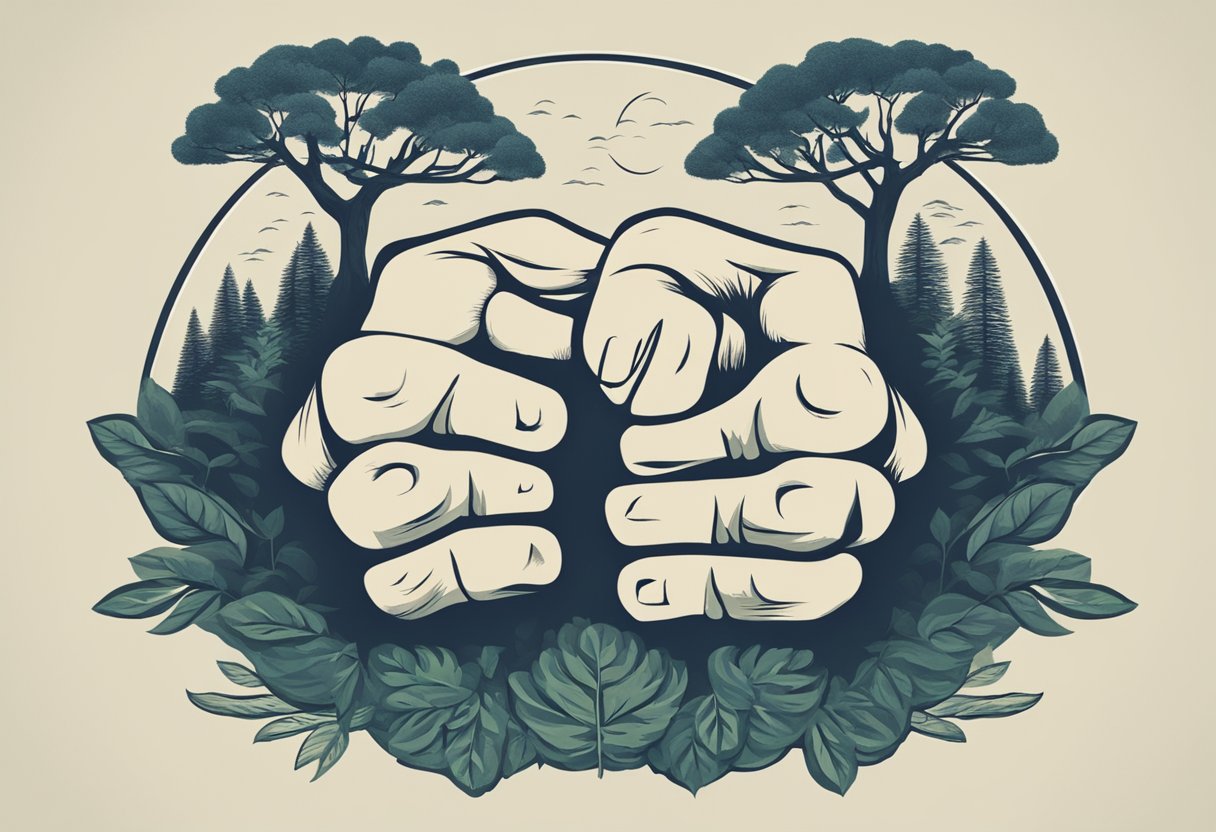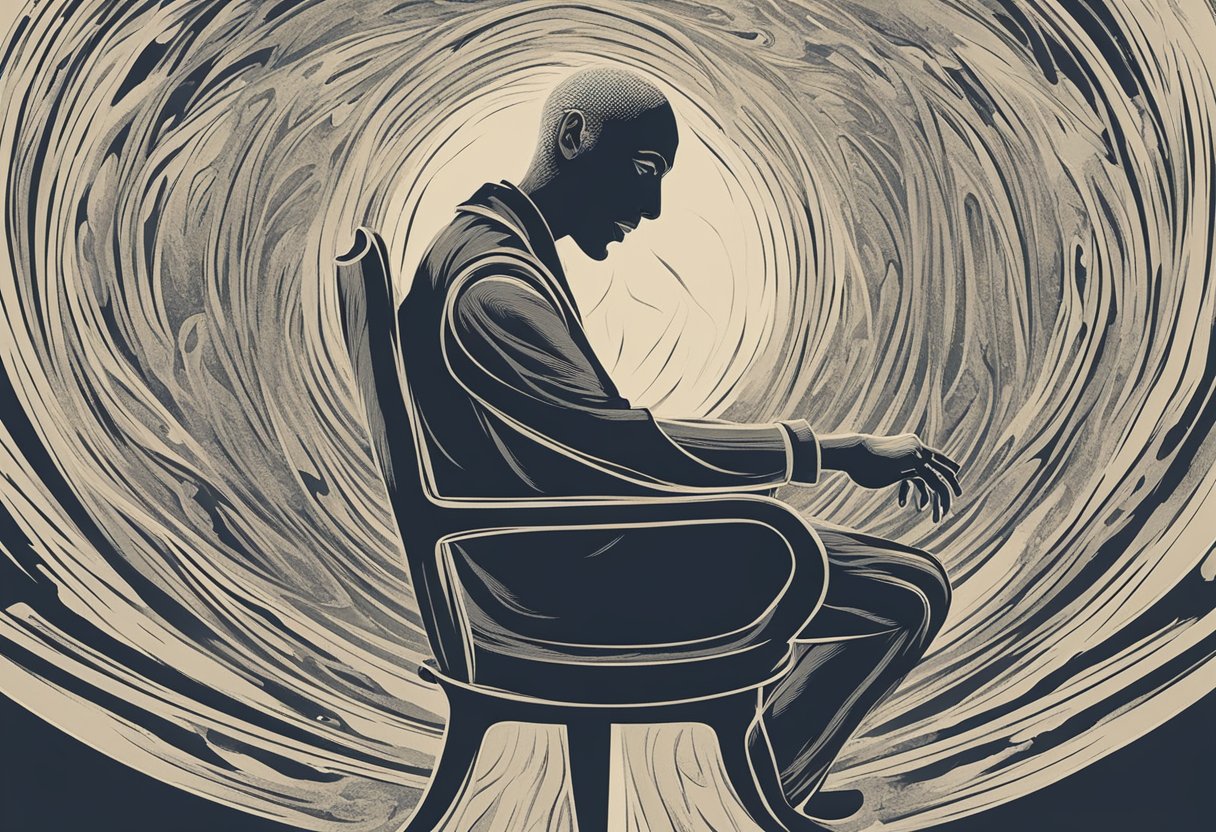Cancer Thriver Strategies and Regaining Emotional Balance
In navigating the complex journey of cancer, we often encounter a range of emotions. Anger can be a natural response to the many challenges that come with a cancer diagnosis, from grappling with the reality of the condition to enduring the rigors of treatment.
However, the chronic suppression of this anger has been linked with adverse health outcomes. This suggests how we handle these fiery emotions might affect our overall wellbeing.

As cancer thrivers, we understand that coping strategies and emotional management are crucial in our battle against the disease. Embracing our emotions without letting them overwhelm us enables better psychological resilience and can even impact our physical health.
Solutions lie not solely in the treatments we undergo but also in the emotional support systems we foster and in our commitment to living thoroughly and vigorously beyond cancer.
Key Takeaways
- Anger is a natural part of the cancer journey but should not be suppressed.
- Effective coping strategies enhance psychological resilience.
- Strong social support systems contribute to better health outcomes.
Understanding Anger in the Cancer Journey

As we navigate the cancer journey, emotions like anger and guilt are common responses to a diagnosis, yet often, we overlook their impact on our wellbeing.
The Role of Emotions in Cancer
Our emotions play a vital role in the way we handle a cancer diagnosis. Anger, in particular, can emerge as a response to the feelings of helplessness and disruption that a diagnosis brings.
We may confront an array of negative emotions, from guilt about our condition’s effect on relationships to anger about losing our sense of normalcy. Recognizing and expressing these emotions can be vital in our healing process. It also reminds us that our emotions are valid reactions to a life-altering event.
Suppressing Anger and Its Implications
When we suppress anger, we might think we’re protecting our loved ones or ourselves from the rawness of our feelings. However, studies suggest that not expressing anger can be counterproductive to our health.
By holding back, we risk harboring emotions that can complicate our emotional landscape and potentially disrupt our physical health. Suppressing anger has been linked to health implications, underscoring the need to find healthy outlets for these powerful feelings.
Constructive expression of anger is a step toward reclaiming control over our experience and encouraging a supportive dialogue with those around us.
Cancer Diagnosis and the Emotional Onslaught

When we receive a cancer diagnosis, the flood of emotions can be as overwhelming as the illness itself. Our journey through these feelings impacts our overall wellbeing and quality of life.
Immediate Emotional Responses
Upon hearing the word “you have cancer,” many of us experience a visceral reaction where anxiety and fear quickly take root. This diagnosis can make us feel like we’re losing control of our lives, leaving us to grapple with deep uncertainty about our future.
For us men, who are often taught to be stoic, these emotions may manifest through irritability, prompting a need to suppress our worry and sadness. Yet, we can only begin our path toward emotional resilience by acknowledging these feelings.
The Long-Term Effects on Mental Health
As time marches on, the initial shock of our diagnosis may give way to enduring mental health challenges. Depression is not uncommon among us, with the shadow of the disease looming over our day-to-day lives and coloring our outlook.
Our emotional struggle, if left unattended, can chip away at the edges of our existence, affecting our relationships and our ability to thrive despite our condition. In these moments, tapping into supportive networks and finding constructive outlets becomes vital to sustaining our optimism and zest for life.
Treatment and Coping Strategies

As survivors, we understand that tackling cancer involves a strenuous journey, both physically and mentally. Our approach must be holistic, locating effective methods for managing the rigorous treatments and nurturing our emotional wellbeing.
Navigating Cancer Treatment
The path through cancer treatment often involves chemotherapy, surgery, and other medical interventions. We must stay informed and actively participate in decision-making.
Chemotherapy: This can be an overwhelming experience. Yet, sticking to a routine can foster a sense of control.
- Before Treatment: Arrange transport and prepare a comfort kit with items to help pass the time.
- During Treatment: Engage in quiet activities like reading or listening to music that can be a calming distraction.
- Post Treatment: Arrange for rest and follow the recovery guidelines in the letter.
Surgery: Major surgeries demand both physical and psychological preparation.
- Pre-Surgery: Tour the facility and meet the team to build rapport and ease anxiety.
- Post-Surgery: Participate in all prescribed rehabilitation to promote recovery and regain strength.
Emotional and Psychological Coping Methods
The emotional skirmish with cancer can be as grueling as the physical one. We lean on various strategies to maintain our mental health.
Coping Strategies: Identify techniques that foster resilience. Cognitive practices such as stress management interventions can be instrumental in psychological adaptation for us as survivors.
- Expression: Allow ourselves the space to express anger and frustration healthily, such as through creative outlets or sports.
- Mindfulness: Techniques like meditation can stabilize our emotions and grant us a clear focus.
Support Systems: A robust support system is the backbone of our journey.
- Community: Connect with fellow survivors who understand our struggle intimately. Shared experiences can create an unwavering support network.
- Presence: Sometimes, just having someone present is a source of immense strength. Friends and family can be a source of solace, even without words.
The Influence of Social Support Systems

Building a robust social support system has a profound impact on our journey as cancer thrivers, providing emotional sustenance and practical aid through challenging times.
Family and Friend Networks
We often underestimate the power our loved ones wield in our battles against cancer. Their presence reminds us that we’re not alone, offering comfort when treatments overwhelm us.
Family and friends often become our pillars, offering an empathetic ear and a helping hand. They partake in doctor visits, help manage side effects, and maintain the home front during recovery.
- Emotional Empathy: Our family’s empathy fuels us, giving us strength to face each day with renewed vigor.
- Practical Assistance: Rides to appointments and help with daily tasks are just as crucial as emotional support.
Finding Community and External Support
Connecting with communities beyond our immediate circle amplifies our resilience. Support groups specifically tailored to men with cancer forge bonds that only those who have walked a similar path can understand.
We exchange knowledge on handling the disease, from managing symptoms to navigating the health system, learning we share more than just a diagnosis; we share determination.
- Support Groups: These gatherings provide a space to discuss fears and triumphs openly, fostering a sense of brotherhood.
- Community Resources: Local organizations offer services that cater to our unique needs as men fighting cancer, such as fitness programs that maintain our strength and morale.
Physical and Psychosocial Health Interplay

Our journey through illness shapes us in many ways, touching our bodies and minds. The path of a cancer thriver intertwines physical wellness with emotional fortitude.
The Psychological Impact on Physical Health
Our emotional health wields significant influence over our physical state. Feelings of anger, if bottled up, can increase cortisol levels. This stress hormone can dampen our immune system’s efficacy.
For us, managing stress is not merely a matter of mindset; it directly contributes to our physical wellbeing.
Natural killer cell cytotoxicity—our body’s built-in defense against tumors—can falter under continuous stress. It becomes crucial for us to find outlets that lower cortisol and bolster our immune responses.
- Techniques to Boost Health:
- Regular physical activity
- Mindfulness and meditation
- Supportive social interactions
Cancer’s Effect on Identity and Social Roles
A cancer diagnosis can refract the way we view ourselves and function within our families. Our identity no longer reflects only who we were but now includes the resilience and perspective we’ve gained.
Men, in particular, may struggle with societal expectations to remain stoic, yet through vulnerability comes strength.
Communication becomes a linchpin—fostering connections enhances our emotional wellbeing and has the power to strengthen familial bonds.
In our experience, engaging in team sports or exercising with peers supports us physically and reaffirms our sense of belonging and purpose.
- Actions to Reinforce Identity:
- Initiate conversations about our experiences
- Engage in community work or advocacy
- Participate in sporting events with others
Living Beyond Cancer
After the arduous journey of the cancer experience, we shift our focus to flourishing as we move forward. This phase isn’t just about survival; it’s a process of embracing a renewed sense of identity and purpose.
Transitioning from Survivor to Thriver
We understand the profound shift in our identity as we transition from being a cancer survivor to a thriver.
The term survivor often represents the end of our treatment, while thriver signifies our growth and zest for life post-cancer.
We use our experience to foster a favorable prognosis, not just in terms of physical health but also in our overall quality of life. Our time battling lymphoma taught us about resilience and served as a springboard for our development in all aspects of life.
- Survivor: A term symbolizing the completion of treatment and the battle against cancer.
- Thriver: Represents our evolution post-treatment, emphasizing personal growth and proactive living.
Adapting to New Normals
With the conclusion of treatment, we embrace our new normals, recognizing that our previous way of life has transformed. Adjusting to these changes requires us to split our time between navigating a fresh landscape of experiences and language.
The way we converse about ourselves and our journey reflects our evolving identity.
We continuously assess and adapt our lifestyles to enhance our wellbeing, ensuring that we avoid viewing life through the restrictive lens of a diagnosis.
In team sports, for instance, we find camaraderie and an excellent outlet for physical and mental vitality. Engaging in such activities supports our spirit and fosters a sense of community.
- New Normals: Our post-treatment reality is characterized by changes in routines, outlooks, and self-perception.
- Experience and Language: Our lived experience shapes our terminology, influencing our conversations and self-image.
Sport remains a testament to our journey, where we find common ground, rebuild our strength, and rewrite our narratives as people triumphed over cancer.
Special Considerations
In our journey with cancer, we must recognize the distinct emotional needs arising from our gender and age. These subtleties merit careful consideration to tailor the support that truly connects with each person’s battle.
Gender-Specific Experiences with Cancer
We find ourselves in different arenas when facing cancer. As men who’ve tackled lymphoma, our battles are distinct from those seen in other cancers, such as prostate cancer.
Our emotions may manifest differently; we might stifle feelings of vulnerability or struggle with the stigma that asks us to remain stoic in the face of illness.
We must break these barriers and acknowledge our need for support, allowing ourselves the vulnerability to experience and express our emotions fully.
The presence of our loved ones becomes a cornerstone of our strength, helping alleviate the loneliness that may loom over us.
Engaging in sports and other physical activities serves as a distraction and a way to reignite our sense of camaraderie and resilience.
Age-Related Emotional Concerns in Cancer Care
The tapestry of ages contrasts our journey. Children deal with a profound level of confusion and fear that their limited life experience cannot unpack.
We must approach their care with gentleness and clarity, ensuring they feel heard. We have a dual focus: achieving the best prognosis and preserving a sense of normalcy within their lives.
Initiatives must include them in sports and activities tailored to their age, fostering a sense of inclusion and normalcy.
As we band together, catering to these nuances becomes not just an act of compassion but a beacon of hope that lights our collective path to healing.
Final Thoughts
As we navigate life after cancer, it’s normal to encounter a range of emotions, including moments of anger. On this journey, embracing our feelings and finding healthy outlets is key.
We know men might often suppress these emotions, yet expressing them could lead to more excellent emotional health.
Some studies, like the one discussed in Psychology Today, link suppressed anger with health challenges. This insight is valuable as we support each other in our paths to thrive after cancer.
Moreover, as thrivers, we recognize the power of community and the strength gained from shared experiences.
In our conversations and support groupslet’s’s foster environments where we can speak freely about our struggles and triumphs.
Let’s also encourage each other to participate in team sports or find solace in individual physical activities that can be an emotional release and a way to rebuild our strength.
We do not need to face these times alone. Collective wisdom and resilience guide us toward a healthier, more balanced state of being.
As we lace up our sneakers or take to the field, we stand united in our goal to live whole, vibrant lives post-cancer. Let’s carry this spirit forward and continue to support our fellow men on this life-affirming journey. -T
Frequently Asked Questions
In this section, we tackle common inquiries about managing emotions and wellbeing during cancer treatment, focusing mainly on strategies that resonate with men who face such challenges.
What are effective strategies for managing anger in stage 4 cancer patients?
We discover that channeling feelings into positive activities fosters resilience. Activities like team sports or martial arts provide constructive outlets for anger, promoting both physical health and psychological relief.
What is the relationship between emotional suppression and cancer prognosis?
Holding back emotions can affect recovery. We’ve learned that expressing feelings openly can lead to better health outcomes, as maintaining social connections and seeking psychological support can alleviate stress, which may improve prognosis.
How can someone with cancer maintain a positive mindset through their treatment?
We find inspiration in shared experiences and draw strength from our bonds. Focusing on goals, celebrating small victories, and cultivating gratitude instill hope. One approach is connecting with fellow survivors who understand the journey, as cancer thrivers inspire us with their resilience.
Is there any scientific evidence linking anger to the development of cancer?
The link between anger and cancer is not clear-cut, but stress from sustained anger might affect our immune response. Research continues to explore this connection, with some studies, such as those by Greer and Morris, suggesting that suppressed emotions could contribute in some cases.
What methods help improve the longevity of cancer patients?
Staying active and maintaining a nutritious diet are pillars for prolonging life. We also encourage keeping up with regular screenings and treatments, as they are critical in managing the disease effectively.
Are there documented cases of patients surviving stage 4 cancer, and what factors contributed?
Yes, there are inspiring cases of survival against the odds. These stories often include a multi-faceted approach: cutting-edge medical treatments, robust support systems, and the patients’ fierce willpower.
Each victory provides us with invaluable insights into the power of perseverance and advanced cancer care.
